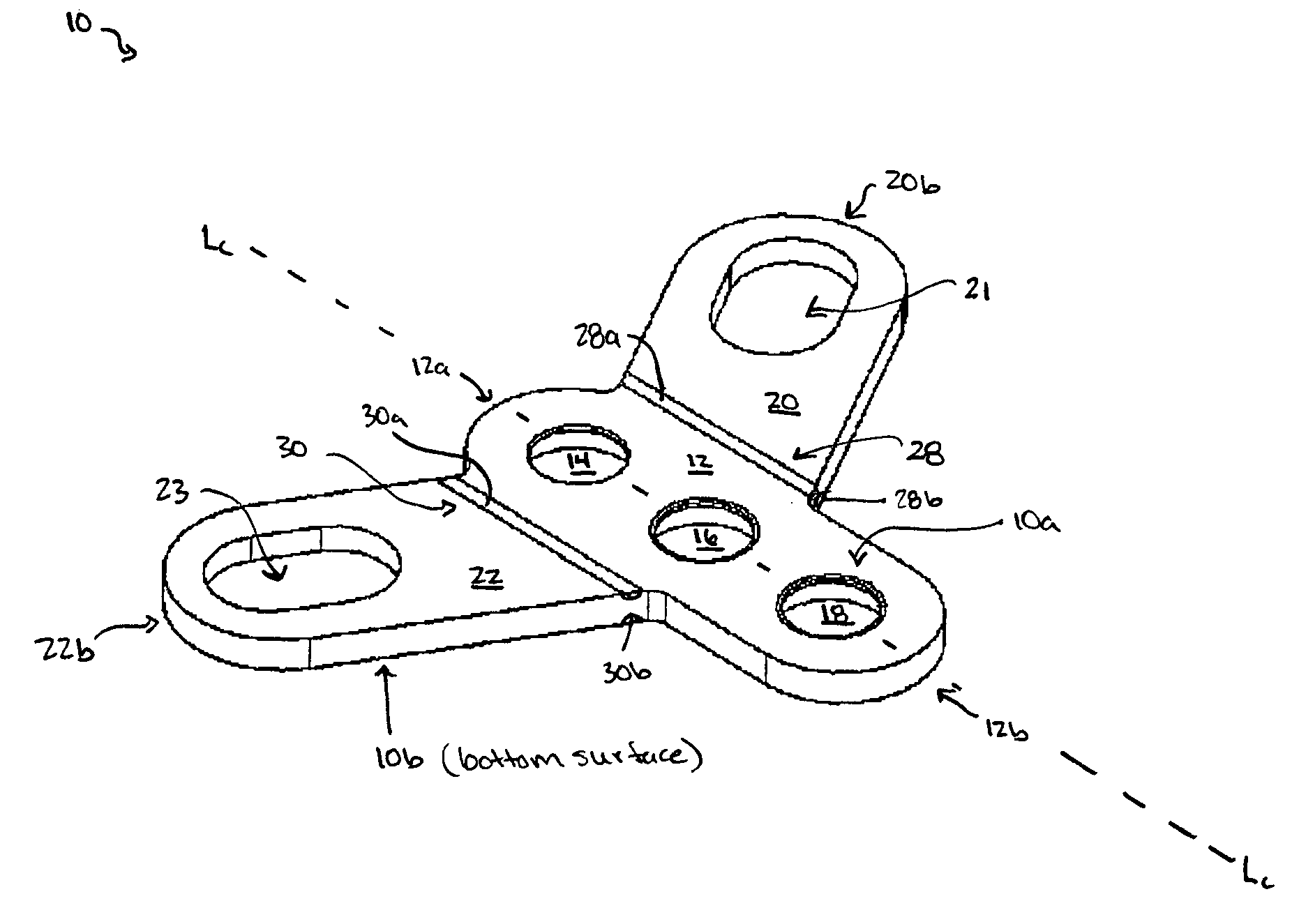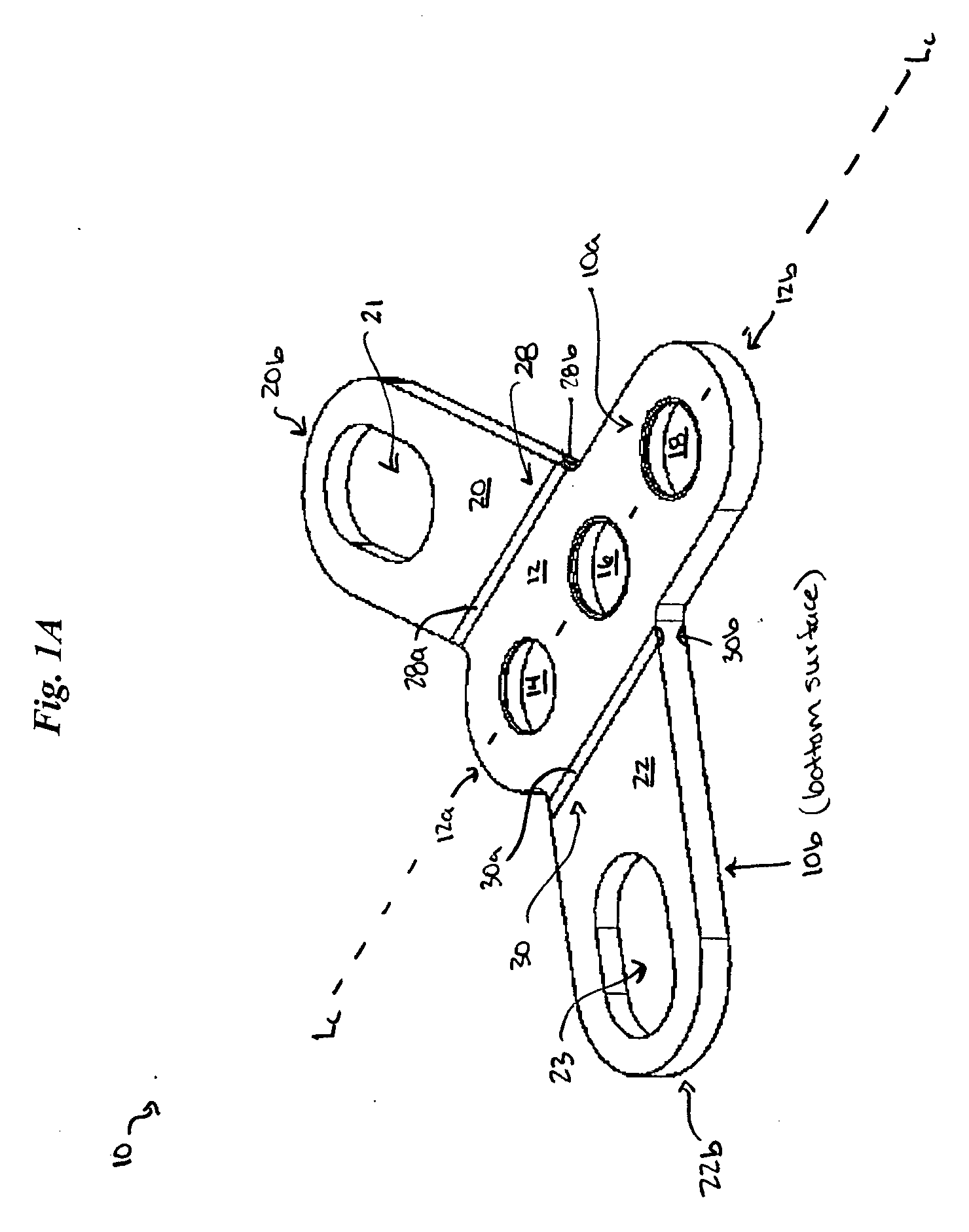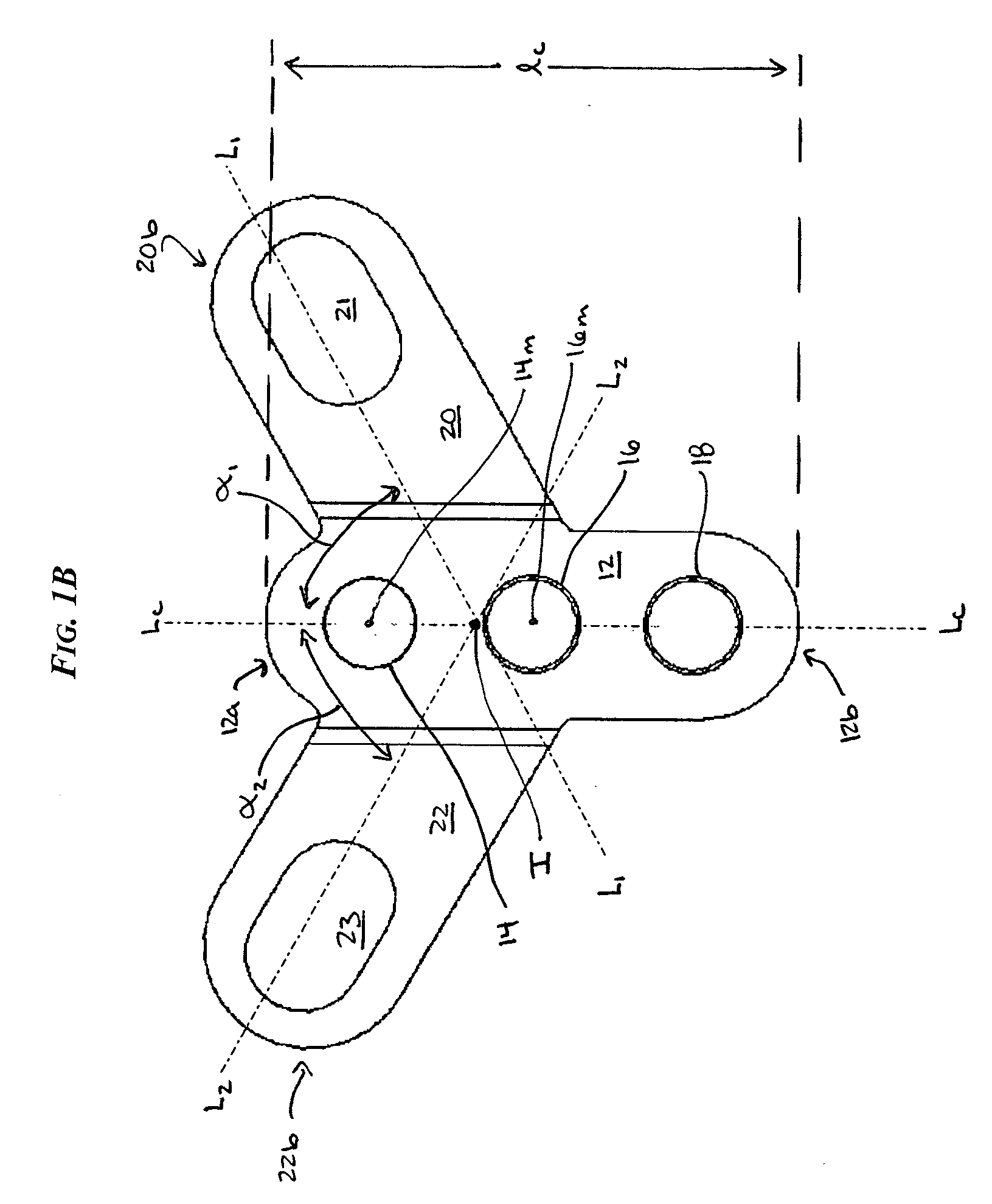Spinal fixation plates and plate extensions
- Summary
- Abstract
- Description
- Claims
- Application Information
AI Technical Summary
Benefits of technology
Problems solved by technology
Method used
Image
Examples
Embodiment Construction
[0024] The present invention provides a spinal fixation plate that is adapted to be implanted in a variety of positions in the occiput. In general, the plate has a substantially planar configuration and it includes a mid-line or central portion having several thru-bores formed therein, and first and second opposed branch portions that extend from the central portion and that also include at least one thru-bore formed therein. The configuration of the branch portions relative to the central portion, as well as the position of the mid-line thru-bores formed in the central portion in relation to the thru-bore(s) formed in each branch portion, allow the spinal fixation plate to be implanted in a variety of positions in the occiput, thus allowing the optimal implant site to be selected. The configuration also allows a variety of other spinal fixation devices, such as spinal rods, cables, plates, etc. to be attached to the plate in an optimal position.
[0025]FIGS. 1A-1B illustrate one emb...
PUM
 Login to View More
Login to View More Abstract
Description
Claims
Application Information
 Login to View More
Login to View More - R&D
- Intellectual Property
- Life Sciences
- Materials
- Tech Scout
- Unparalleled Data Quality
- Higher Quality Content
- 60% Fewer Hallucinations
Browse by: Latest US Patents, China's latest patents, Technical Efficacy Thesaurus, Application Domain, Technology Topic, Popular Technical Reports.
© 2025 PatSnap. All rights reserved.Legal|Privacy policy|Modern Slavery Act Transparency Statement|Sitemap|About US| Contact US: help@patsnap.com



